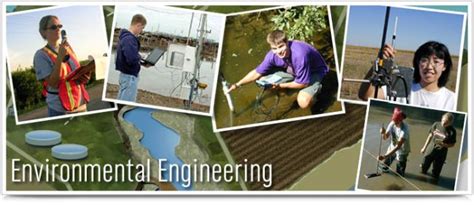Environmental engineering is an increasingly important field as we strive to create a sustainable future for our planet. In this blog post, we will explore the various aspects of environmental engineering programs offered in American universities. From the importance of environmental engineering in shaping a sustainable future to the top universities offering these programs, we will delve into the key courses, research opportunities, internships, and career prospects available to students. Additionally, we will discuss the promotion of diversity and inclusion within these programs, as well as collaborative projects and partnerships that are driving innovation in the field. Whether you’re a prospective student, a current student, or simply interested in the advancements being made in environmental engineering, this blog post aims to provide valuable insights into the world of environmental engineering education in the United States. Join us as we explore the future of environmental engineering and the role it plays in shaping a more sustainable world.
Table of Contents
Introduction to Environmental Engineering Programs
Environmental engineering programs are designed to equip students with the knowledge and skills necessary to address complex environmental challenges. These programs focus on the application of engineering principles to protect and improve the environment, as well as the sustainability of natural resources. Students in environmental engineering programs learn about various aspects of environmental protection, including air and water quality, waste management, and sustainable energy systems.
One of the key goals of environmental engineering programs is to train future professionals who can develop innovative solutions to mitigate environmental issues and promote sustainable development. These programs emphasize the importance of interdisciplinary collaboration and the integration of engineering, science, and technology to address environmental challenges. Upon completion of their studies, graduates of environmental engineering programs are well-prepared to pursue careers in environmental consulting, government agencies, research institutions, and the private sector.
Students enrolled in environmental engineering programs can expect to gain hands-on experience through laboratory work, field studies, and design projects. These practical components of the curriculum allow students to apply theoretical knowledge to real-world environmental problems and develop critical thinking and problem-solving skills essential for their future careers. Additionally, many environmental engineering programs offer opportunities for internships, co-op programs, and research projects that allow students to gain valuable professional experience while still in school.
Overall, environmental engineering programs play a crucial role in preparing the next generation of professionals who are committed to creating a sustainable future and preserving the health and well-being of our planet. These programs provide students with a strong foundation in environmental science, engineering principles, and ethical decision-making, empowering them to make a positive impact on the world around them.
Importance of Environmental Engineering in Creating a Sustainable Future
Environmental engineering plays a crucial role in creating a sustainable future for our planet. With the growing concerns of climate change, pollution, and depletion of natural resources, it has become more important than ever to prioritize environmental protection and conservation. Environmental engineers are at the forefront of this challenge, utilizing their expertise to develop innovative solutions that can mitigate environmental impacts and promote sustainability.
Environmental engineering involves the application of scientific and engineering principles to protect and improve the environment. This can include designing water treatment systems, developing renewable energy technologies, and implementing waste management strategies. By addressing these critical issues, environmental engineers are actively contributing to the preservation of natural ecosystems and the well-being of future generations.
Furthermore, the impact of environmental engineering extends beyond immediate environmental concerns. By actively working towards sustainability, environmental engineers also contribute to the overall well-being of communities and societies. Their efforts in creating cleaner and healthier environments directly benefit public health, economic stability, and social equity.
In conclusion, the importance of environmental engineering in creating a sustainable future cannot be overstated. Through their dedication and expertise, environmental engineers are instrumental in addressing environmental challenges and promoting sustainable practices. Their work is essential in ensuring that our planet can thrive for generations to come.
Top Universities Offering Environmental Engineering Programs
When it comes to pursuing a degree in environmental engineering, choosing the right university is crucial. Fortunately, there are several top universities around the world that offer exceptional environmental engineering programs, providing students with the knowledge and skills needed to make a positive impact on the environment.
One of the top universities offering environmental engineering programs is the Massachusetts Institute of Technology (MIT). Known for its rigorous curriculum and cutting-edge research opportunities, MIT provides students with a strong foundation in environmental engineering, allowing them to tackle complex environmental challenges.
Another renowned institution for environmental engineering programs is Stanford University. With a focus on sustainability and innovation, Stanford equips students with the tools to develop sustainable solutions for a variety of environmental issues, making it a top choice for aspiring environmental engineers.
Additionally, the University of California, Berkeley is widely recognized for its environmental engineering programs. With a curriculum that emphasizes interdisciplinary approaches to environmental problem-solving, UC Berkeley prepares students to address the complexities of environmental issues through a combination of engineering, science, and policy.
Key Courses and Curriculum in Environmental Engineering Programs
Environmental engineering programs offer a diverse range of courses and curriculum designed to prepare students for careers in addressing environmental challenges. The key courses in these programs typically include fundamentals of environmental engineering, environmental chemistry, water and wastewater treatment, air pollution control, solid waste management, and environmental impact assessment. These courses provide students with a solid foundation in understanding the principles and practices of environmental engineering.
Additionally, students in environmental engineering programs often take courses in environmental policy and regulations, environmental risk assessment, sustainable energy systems, and ecological engineering. These courses are essential for students to develop a comprehensive understanding of the environmental issues and to learn about the policies and regulations that govern environmental protection and sustainability.
Furthermore, environmental engineering programs may also include courses in geographic information systems (GIS), environmental modeling, and sustainable design. These courses are aimed at equipping students with the technical skills and knowledge required to analyze and address complex environmental problems and to develop sustainable solutions.
Overall, the curriculum in environmental engineering programs is designed to provide students with a well-rounded education in the principles, theories, and practical applications of environmental engineering, preparing them to make meaningful contributions towards a sustainable future.
Research Opportunities for Environmental Engineering Students
Environmental engineering students have numerous research opportunities available to them throughout their education. Whether it’s conducting field studies, analyzing data, or contributing to groundbreaking projects, research is a crucial aspect of their academic journey.
One of the primary research opportunities for environmental engineering students is to work alongside faculty members on various research projects. These projects may focus on sustainability, pollution prevention, water resource management, or other critical environmental concerns. Students have the chance to gain hands-on experience and contribute to important academic research.
Additionally, many environmental engineering programs offer students the chance to pursue their own research initiatives. This may involve identifying a specific environmental problem of interest and designing a comprehensive research study to address it. From conducting experiments to presenting findings, students have the opportunity to explore their own areas of interest in depth.
Furthermore, research opportunities for environmental engineering students often extend beyond the campus. Many programs offer collaboration with industry partners, government agencies, and nonprofit organizations, providing students with real-world research experiences and valuable networking opportunities.
Internship and Co-op Programs in Environmental Engineering
Internship and co-op programs play a crucial role in the education and professional development of environmental engineering students. These programs provide students with valuable hands-on experience in real-world environmental engineering projects, allowing them to apply the knowledge and skills they have acquired in the classroom to practical situations. Internships and co-op programs also give students the opportunity to network with industry professionals and gain insights into the day-to-day responsibilities of environmental engineers.
Participating in an internship or co-op program can set environmental engineering students apart from their peers when they enter the job market. Employers value candidates who have practical experience in addition to their academic qualifications, and internships and co-op programs provide students with the opportunity to demonstrate their abilities in a professional setting.
It is important for environmental engineering programs to actively seek out and establish relationships with industry partners to provide students with high-quality internship and co-op opportunities. These partnerships enable students to work on meaningful projects under the guidance of experienced professionals, contributing to their overall professional development and preparing them for successful careers in environmental engineering.
Overall, internship and co-op programs are essential components of environmental engineering education, helping students gain practical experience, develop professional skills, and establish valuable connections within the industry. By participating in these programs, students can enhance their learning and make meaningful contributions to environmental engineering projects while preparing for successful careers in the field.
Career Prospects for Environmental Engineering Graduates
Environmental engineering is a rapidly growing field, and graduates with a degree in this discipline have a wide range of career prospects available to them. With the increasing focus on sustainability and environmental conservation, the demand for environmental engineers is expected to grow in the coming years. Graduates can explore various career paths in both the public and private sectors, with opportunities to work in industries such as water treatment, renewable energy, waste management, and environmental consulting.
One of the key career prospects for environmental engineering graduates is working in the field of water resource management. This includes designing and implementing systems for water treatment, distribution, and waste water management. Graduates may also find opportunities to work on projects related to storm water management, flood control, and water conservation. Additionally, they can contribute to the development and implementation of sustainable water resource management practices.
Another promising career path for environmental engineering graduates is in the area of sustainable energy. With the growing emphasis on renewable energy sources, there are abundant opportunities for graduates to work on projects related to solar, wind, and hydroelectric power. They can also explore careers in energy efficiency and conservation, helping to reduce the environmental impact of energy production and consumption.
Environmental engineering graduates also have the option to pursue careers in environmental consulting firms, where they can work on a variety of projects related to environmental impact assessments, compliance with regulations, and sustainable development. They may also have the chance to work on interdisciplinary teams, collaborating with professionals from other fields such as urban planning, architecture, and public health.
Promoting Diversity and Inclusion in Environmental Engineering Programs
Environmental engineering is a field that is crucial for addressing and solving environmental challenges. In order to effectively tackle these issues, it is essential to promote diversity and inclusion within environmental engineering programs. Achieving diversity and inclusion in this field is not only a matter of social justice, but it also brings a range of benefits to the field itself.
Firstly, diversity and inclusion in environmental engineering programs can lead to a wider range of perspectives and ideas. When individuals from different backgrounds, cultures, and experiences come together, they bring unique insights and approaches to problem-solving. This can result in more innovative and effective solutions to environmental issues.
Furthermore, promoting diversity and inclusion can help to create a more welcoming and supportive environment for all students. It can also help to address and break down barriers that have historically prevented certain groups from fully participating in the field of environmental engineering. This not only benefits the individuals involved, but also enriches the entire engineering community.
Overall, it is clear that promoting diversity and inclusion is crucial for the success of environmental engineering programs. By fostering a more diverse and inclusive environment, these programs can better address the complex and interconnected environmental challenges facing the world today.
Collaborative Projects and Partnerships in Environmental Engineering Education
Collaborative projects and partnerships play a crucial role in the field of environmental engineering education. By working together with industry partners, academic institutions can develop cutting-edge solutions to environmental challenges, while providing students with valuable hands-on experience and real-world problem-solving skills. These collaborations also help bridge the gap between theory and practice, allowing students to apply their knowledge in practical settings and gain a deeper understanding of the complexities of environmental engineering.
In addition, collaborative projects offer students the opportunity to work on interdisciplinary teams, an essential skill for environmental engineers who often need to collaborate with professionals from diverse backgrounds. These partnerships also provide valuable networking opportunities, allowing students to connect with potential employers and mentors in the field. By engaging in collaborative projects, students can gain a deeper understanding of the interconnected nature of environmental challenges, and develop the skills necessary to address these issues in a holistic and effective manner.
Furthermore, partnerships with industry leaders and government agencies provide students with access to state-of-the-art facilities, cutting-edge technology, and real-world data, enhancing their learning experience and preparing them for the demands of the industry. By working on projects with real-world applications, students can see the impact of their work and gain a greater sense of purpose and motivation in their studies.
Overall, collaborative projects and partnerships are essential components of environmental engineering education, offering students the opportunity to apply their knowledge in real-world settings, develop essential teamwork and communication skills, and gain valuable industry connections that can help launch their careers in environmental engineering.
Innovations and Advances in Environmental Engineering Field
Environmental engineering is a field that constantly sees innovations and advances aimed at solving pressing environmental issues. These advancements play a crucial role in addressing pollution, climate change, and resource sustainability. One of the key innovations in environmental engineering is the development of advanced water treatment technologies that enable efficient removal of contaminants from wastewater, ensuring the protection of water resources and public health.
Another significant advancement is the integration of green infrastructure in urban development. This involves incorporating natural features such as vegetated rooftops, permeable pavement, and constructed wetlands to manage stormwater, reduce urban heat island effects, and enhance biodiversity. Such innovative approaches not only improve environmental quality but also contribute to creating more resilient and sustainable cities.
Furthermore, the field of environmental engineering has witnessed notable progress in the area of renewable energy technologies. Engineers and researchers are continually working on developing cleaner and more efficient energy sources, such as solar, wind, and bioenergy, to reduce reliance on fossil fuels and mitigate greenhouse gas emissions.
Moreover, advancements in environmental monitoring and data analytics have revolutionized the way environmental engineers assess and manage environmental impacts. The use of advanced sensors, remote sensing technologies, and big data analytics enables real-time monitoring of environmental parameters, leading to more effective decision-making and proactive environmental management.






